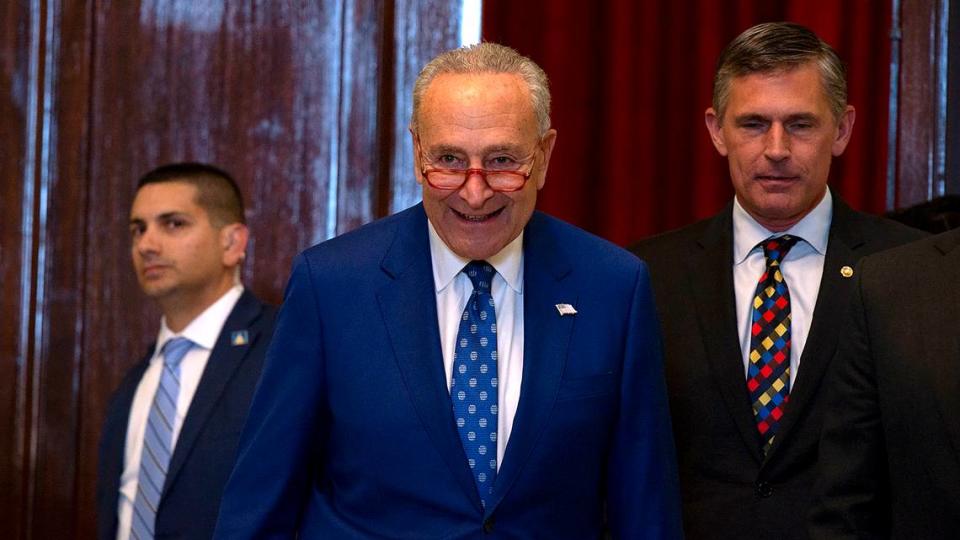Senate’s efforts to rein in artificial intelligence have a risk: stifling innovation | Opinion
The economy is a wonderful thing. It’s always changing and always bringing us new things.
The buzz, the new things in our economy are generative artificial intelligence and large learning models. This new computer technology has the potential to change the way we learn, work and trade.
A group of senators is concerned. Leaders of the U.S. Congress recently convened a closed-door meeting with executives from large corporations in the technology industry to consider how AI should be regulated. But there is always the question of whether or not the government should be involved. No matter the potential benefit of any new regulation, basic economic principles show that such regulations limit our potential.
As I wrote earlier, scholars at The Center For the Study of Market Alternatives ask tough, and often contentious, questions about the economy and economic policy. As part of these studies, we frequently look to the insights of Adam Smith on the proper role of government. More specifically, how does a particular public policy, like regulation, affect our liberty to exchange?
Smith explained the fundamental principles of economics in his seminal work, “An Inquiry into the Nature and Causes of the Wealth of Nations.” In the first three chapters he demonstrates with both theory and historical evidence that the wealth of any society grows when the people pursue their self-interests, divide up the labor so as to increase productivity, and expand the opportunities to trade this product.
Pursuing self-interest simply means that we make choices that matter to us. We all face tradeoffs, and must therefore choose various means to meet our personal goals. Smith wrote, “It is not from the benevolence of the butcher, the brewer, or the baker that we expect our dinner, but from their regard to their own self-interest. We address ourselves not to their humanity but to their self-love, and never talk to them of our own necessities, but of their advantages.”
By this first principle we know that incentives matter, and that any government policy that alters incentives will limit or possibly destroy wealth. No matter how small, regulations over the use of AI will limit the ability of researchers to pursue new knowledge. This technology is frequently called machine learning, and is used to study a large amount of data more quickly and efficiently.
A second principle is that we are all more productive when we divide up tasks. Smith wrote that “the division of labour occasions, in every art, a proportional increase of the productive powers of labour.” We participate in society by doing different things and exchanging the results of our specialty with others. Nations become more productive, and increase wealth, as people further specialize.
AI and machine learning create opportunities to further specialize production. A new professional field, known as prompt engineering, has opened up as a result of this technological advancement.
Finally, Smith showed that the benefits of specialized jobs are limited by the extent to which we can trade our goods and services. He wrote, “As it is the power of exchanging that gives occasion to the division of labor, so the extent of this division must always be limited by the extent of that power, or, in other words, by the extent of the market.”
Smith demonstrated that when markets are free and open the extent of trade is as large as possible and the creation of wealth ensues. As with new technologies before it, AI will open new markets for products and services we have yet to imagine. A report from McKinsey & Company estimates that AI will bring about new manufacturing materials, pharmaceuticals, and entertainment media.
Smith gave us what continue to be the fundamental lessons of economics. When people are allowed to pursue their own interests and ideas, find their own special area of service, and trade the results of this work freely, people flourish. Limitation or interference with these principles has the opposite effect, or at least slows us down.
Whatever our Senators conclude from their closed-door meeting on the topic, new regulation on AI will limit our pursuit of knowledge, our efforts to increase the productivity of our work, and the development of new products for the marketplace.
Let’s not mess with a wonderful thing.
Peter Crabb is a professor of economics and the director of the Center for the Study of Market Alternatives at Northwest Nazarene University in Nampa.


